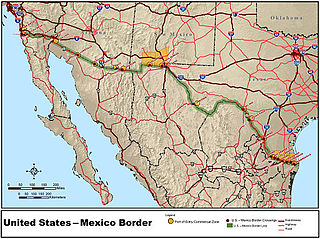The mainstream debate in the United State over immigration policy focuses on whether there should be “immigration reform” or not, with reform being generally synonymous with the immigration bill passed by the U.S. Senate last year and endorsed by President Obama. The bill would raise legal immigration levels by 50 to 70 percent within five years and legalize the millions of undocumented individuals already in the U.S., while also spending more money on tightening control of the southern border.
Earlier this year, John examined the similarities and differences between those backing “immigration reform” (“moderate reformers”) and those promoting open borders. He noted that both groups share the beliefs that immigration can be beneficial economically and socially to a receiving country and that immigration enforcement is often inhumane. Yet, as John points out, moderate reformers “shrink from any inexorable conclusion, no matter how firmly the evidence may point towards it, that open borders could possibly be the right thing to do.”
I recognize that the perfect can be the enemy of the good and have written how moderate reforms can benefit some immigrants, and Vipul has pondered whether the work of the moderate reformers may be more valuable than that of open borders advocates. Nonetheless, the moderate reformers’ intransigence in their thinking about open borders is vexing.
So it is satisfying when the reform camp is challenged in the mainstream media to consider an open borders policy. Ross Douthat, a New York Times columnist, criticizes reformers with regard to the recent influx of children from Central America. Mr. Douthat argues that “the mere promise of an amnesty” has been a factor in the migration. He then presents an open borders solution: “One answer, consistent and sincere, is that the child migration really shows we need an open border — one that does away with the problems of asylum hearings and deportations, eliminates the need for dangerous journeys across deserts and mountains, and just lets the kids’ relatives save up for a plane ticket. Come one, come all. But this is not the answer that President Obama or the congressional architects of an immigration bill would offer. Instead, the official promise is always that we’ll get amnesty and a system of enforcement that will deter and deport and police employers more effectively…” While I disagree with Mr. Douthat’s position that building “a more effective enforcement system” should be attempted before considering amnesty, I applaud his suggestion that the open borders position on the migration of children and immigration generally makes more sense than that of the reformers.
Similarly, on the PBS Newshour Jan Ting of Temple University, a foe of increased immigration levels, has pushed reformers to clarify their thinking: “… I think we have to answer the fundamental question: Do we want unlimited immigration to the U.S. or not?… I actually think a rational, coherent argument can be made for completely open borders… we have just got to make up our minds. Is illegal immigration a problem, yes or no? If it’s not a problem, let’s let everybody in.”
In the long run, it will be beneficial to the open borders cause for the moderate reformers to embrace open borders and join us in pushing for its realization. At the same time, perhaps in the short run it might be beneficial to have both groups, with moderate reformers achieving some gains for immigrants while open borders advocates begin pushing for larger gains in the more distant future. Open borders advocates also can lay the groundwork for moderate reformers to join our cause by continuing to point out the flaws in their thinking, as John has done. Opponents of both reform and open borders, like Mr. Douthat and Mr. Ting, are welcome to help out in this effort.


2 thoughts on “Another Take on Moderate Vs. Radical Approaches to Immigration Policy”